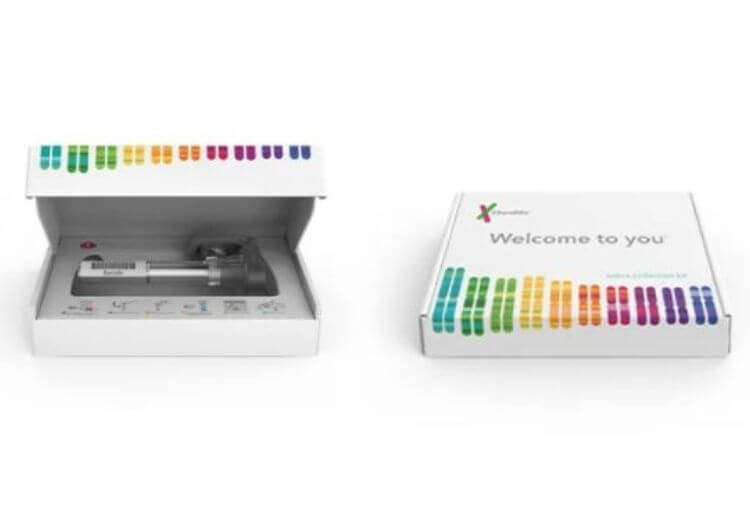Your genes can explain a lot about your eating habits - and it's changing the way many approach dieting.
After 25 years of marriage, Stan and Sheila Guntner have almost identical daily routines and eating habits. But while Sheila has maintained almost the exact same waistline since her wedding day, Stan can’t seem to get rid of the stubborn weight that has accumulated in his midsection.
Now there’s finally something that can shed light on all of this - our genes. With more recent advances in DNA testing, researchers are better understanding the role genetics plays in our well-being, and it’s shifting the way we view diets, obesity and nutrition.
A DNA kit from 23andMe, along with providing insights into ancestral origins, can reveal a lot about how genes affect everything from one's physical makeup and metabolism to cravings for certain foods and the body’s absorption of different nutrients.
Read our full 23andMe review to see what it can teach you about your history

A kit from Vitagene as well can offer detailed information on what foods one should eat and what foods they should avoid. Vitagene's entire product is built around the ability to hone in on what people can eat and what nutrients they can potentially be deficient in and then sending tailor-made supplements to the customer, that contain those specific nutrients.
Salty or Sweet? It's All in Your DNA
DNA test for diet can tell you why you reach for chips during a movie and your sister reaches for twizzlers. Or why you exercise intensely but can’t seem to build muscle while your friend does some light walking and looks like she lifts weights every day.
For those struggling to lose weight, developing a better understanding of the influence of our genetic makeup could be the key to shedding those pesky pounds.
An End to the 'One Size Fits All' Diet
Genetics researchers found that, on average, people with a common variant of the FTO gene are heavier than those without it - two copies of the variant adds about 7 extra pounds and increases the risk of obesity by 50 percent.
In the same way that those who have early-onset diabetes know they need to avoid sugar, those who know they possess the FTO gene variant can take a proactive approach to their health - understanding they’re already at a higher risk for obesity.
“Dietary recommendations are based on averages across large populations," says Jose Ordovas, Ph.D., who directs the Nutrition and Genomics Laboratory at Tufts University. “What nutritional genomics teaches is there is no one-size-fits-all diet that works for everyone."
The Better We Understand How We’re Built, the Better We Can Adjust Our Lifestyle
Researcher Chuck Gethard took a DNA test from 23andMe and found that he has a genetic variant which slows down his body’s conversion of folate, which can be linked to a greater risk of heart disease and stroke. So, Gethard made some small but significant changes to his diet, adding more leafy greens and cauliflower - foods that are high in folate - to offset his body’s slow absorption of the nutrient.
“If it was up to me and my taste buds, I would be eating very differently,” said Gethard. “But knowing that I’m at an increased risk of heart disease, and understanding why, has made me take greater ownership of my health.”
23andMe's innovative research program surveys its users and is currently collecting as many as 2 million facts per week on everything from food preferences to weight loss to family history of diseases. This information is paving the way in our understanding of DNA which can then help in tailoring diets to individual needs - whether that’s for weight loss, diabetes or cholesterol.
If you want to take a proactive approach to your health, try a top at-home test DNA kit from companies like 23andMe and Vitagene and find out for yourself what your DNA can reveal.

